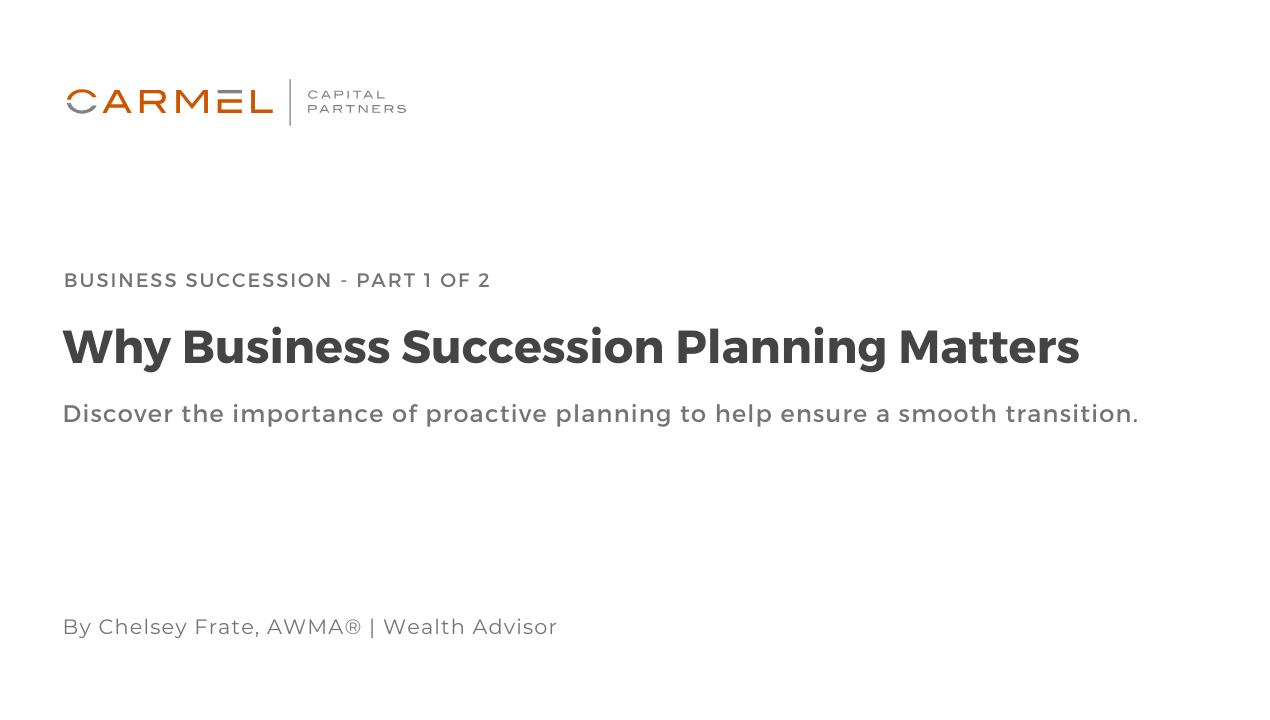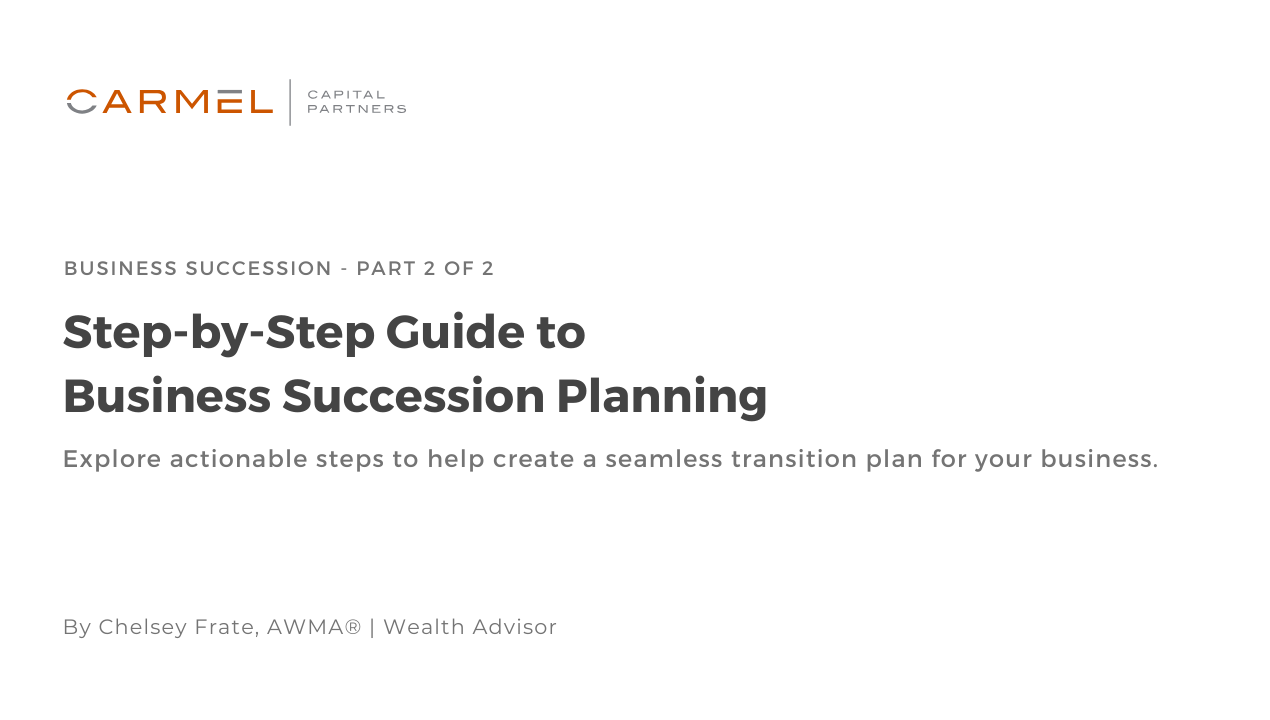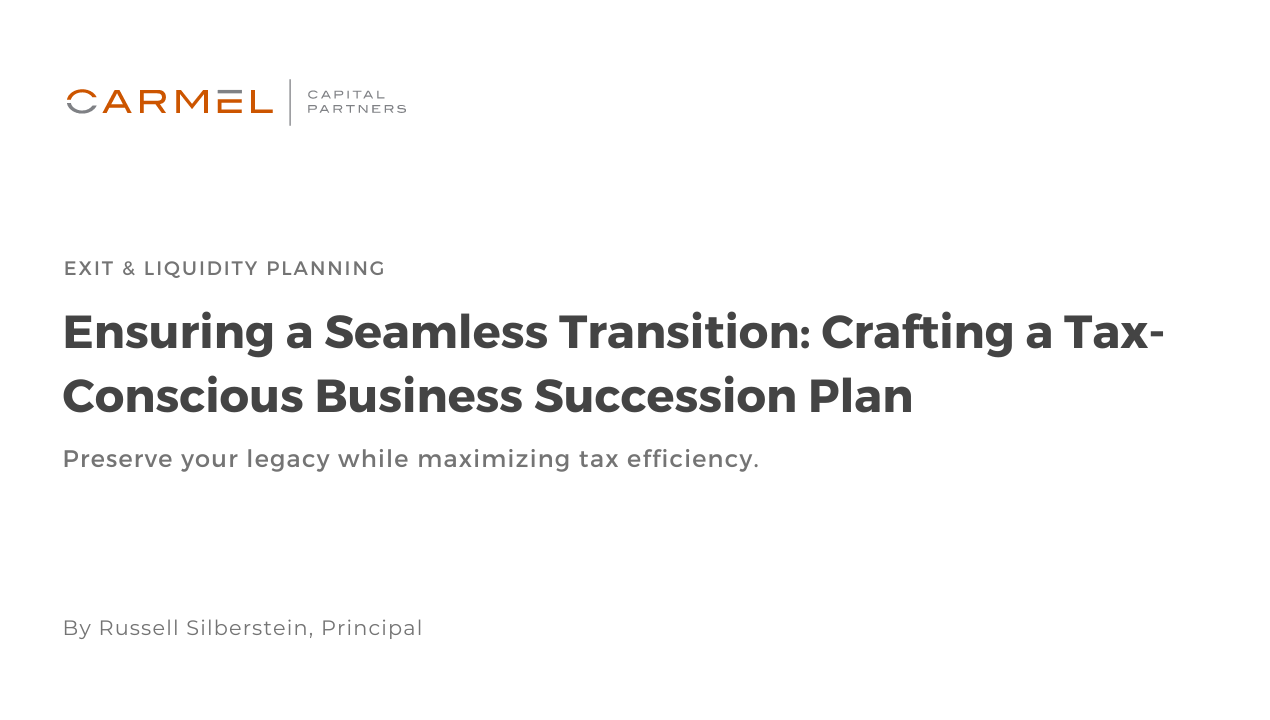Why Business Succession Planning Matters
After years of hard work building your business, the last thing you want is uncertainty when you step away. Yet, many business owners face this due...
2 min read
 Russell Silberstein
:
October 2, 2023 3:00 PM
Russell Silberstein
:
October 2, 2023 3:00 PM
For the families we serve, the accumulation of assets and the growth of their businesses are often a result of years of hard work, dedication, and astute financial management. However, the need to ensure the longevity of their wealth and the smooth transition of their businesses cannot be overlooked.
Developing a comprehensive business succession plan or exit strategy is vital in safeguarding assets and minimizing tax liabilities. This article delves into the importance of early planning and tax-conscious decision-making to maximize wealth preservation for future generations.
A business succession plan serves as a blueprint for transferring ownership and management responsibilities from one generation to the next or during an entrepreneur's exit from the business. Without a well-crafted plan in place, a business's continuity and long-term sustainability can be jeopardized, leading to potential financial loss and family disputes.
Consequently, careful consideration and early action are crucial to address the following key aspects of a successful succession plan.
Time is a precious asset when it comes to business succession planning. Starting early allows for careful analysis, strategic decision-making, and the implementation of tax-efficient strategies. Consider the following advantages of initiating the planning process well in advance:
A thoughtful exit strategy is essential for families who have worked hard to build successful businesses. By starting early and working with the right professionals, business owners can develop a comprehensive plan that minimizes tax liabilities, ensures a smooth ownership transition, and protects their hard-earned wealth and legacy for future generations.
The content is developed from sources believed to be providing accurate information. The information in this material is not intended as tax or legal advice. Please consult legal or tax professionals for specific information regarding your individual situation. The opinions expressed and material provided are for general information and should not be considered a solicitation for the purchase or sale of any security. Investment advisory services are offered through Carmel Capital Partners, an SEC Registered Investment Advisor.

After years of hard work building your business, the last thing you want is uncertainty when you step away. Yet, many business owners face this due...

Planning a successful business transition takes strategy and execution. Now that you know why succession planning matters from Part 1, it’s time to...

For wealthy families and entrepreneurs, building a successful business is a testament to their vision, hard work, and entrepreneurial acumen....